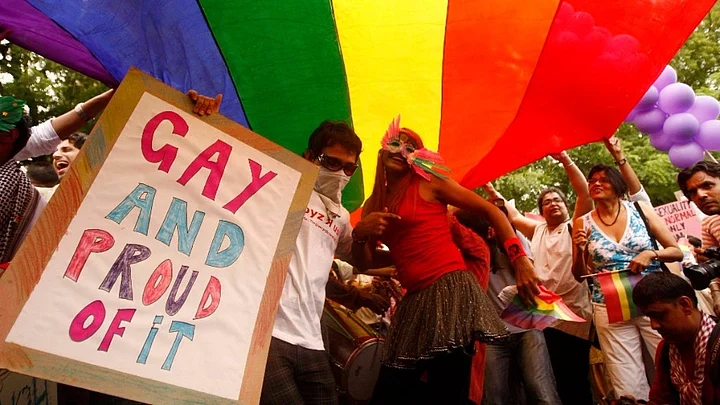In 2013, India backtracked several rungs on the ladder towards gender equality when the Supreme Court re-criminalised same-sex relationships under Section 377, adding woes to the already long battle that the LGBTQ community was fighting. And even as countries like Germany pass legislations towards recognising same-sex relationships, companies in India reflect the larger sentiment by not being ‘LGBT-friendly’.
LGBT employees face a myriad of problems at their workplace associated with their identity.
In fact, according to a report curated by MINGLE – a think-tank that works towards LGBT empowerment – most LGBT employees remain closeted due to subtle and overt homophobia.
They regularly face homophobic harassment and anti-gay comments in the workplace.
The report also discovered that though global companies have policies in support of the community, their Indian offices do not necessarily practise the same.
Of the 100 respondents from Indian and foreign multinationals interviewed, only a small minority of 4 percent were covered by same-sex partnership benefits.
It Is Not Criminal to Promote LGBT Inclusiveness
However, the situation is not as bad as it seems, assures Udayan Dhar, one of the authors of the report.
Despite the lack of a legal mandate on LGBT inclusion in India, some forward looking organisations have taken steps to foster inclusion of LGBT employees. They have taken steps such as putting in place non-discriminatory HR policies, diversity training and in some cases, also supporting the LGBT community outside of the workplace.
For instance, Intel India has been doing a lot of work towards bringing the LGBT community into focus at workplace.
We strongly believe that innovation begins with inclusion. Bringing together people with a wide range of perspectives, background and experiences, encourages an environment of openness, inclusion and appreciation for each other. Intel strongly values diversity and strives to make our workplace inclusive for all.Preethi Madappa, HR Director, Intel India
IGLOBE, Intel’s initiative towards LGBT inclusion helps ‘provide an inclusive environment and support network for LGBT employees.’ Through IGLOBE, the company regularly conducts awareness sessions, ally campaigns and Pride Marches within the company.
But even as progressive companies like Intel adopt policies to become more inclusive, several companies are wary of introducing supportive policies as part of their HR programme solely due to Section 377, notes the report.
However, it must also be noted that Section 377 only decries same-sex relationships. It is neither criminal to recognise oneself as LGBT, nor for an organisation to promote LGBT-inclusive policies.
So, How Can a Company Become LGBT Inclusive?
“One of the best ways to do this is to create and support an Employee Resource Group (ERG)/Affinity Network of LGBT and Allied employees. These ERGs provide a support structure to gay staff, help them network across levels and functions, let them discuss issues of concern with straight employees and allows them more visibility in front of the company’s leadership”, says Dhar.
Apart from the ERGs suggested by Dhar, a company can also look to become more LGBT inclusive by introducing policies in three areas – HR policies, corporate culture and community engagement.
On that note, if you are looking to open a new company, think ‘inclusive’ by adapting these methods to be more LGBT-friendly.
Also, openly LGBT employees perform better than their closeted peers – as it helps in building their trust in their employers.
So, tweak your company’s HR policy to allow the LGBT community their freedom to work freely, without being judged or cat-called for what they identify themselves as. It is not criminal to be LGBT-inclusive, it is only human.
(At The Quint, we question everything. Play an active role in shaping our journalism by becoming a member today.)
